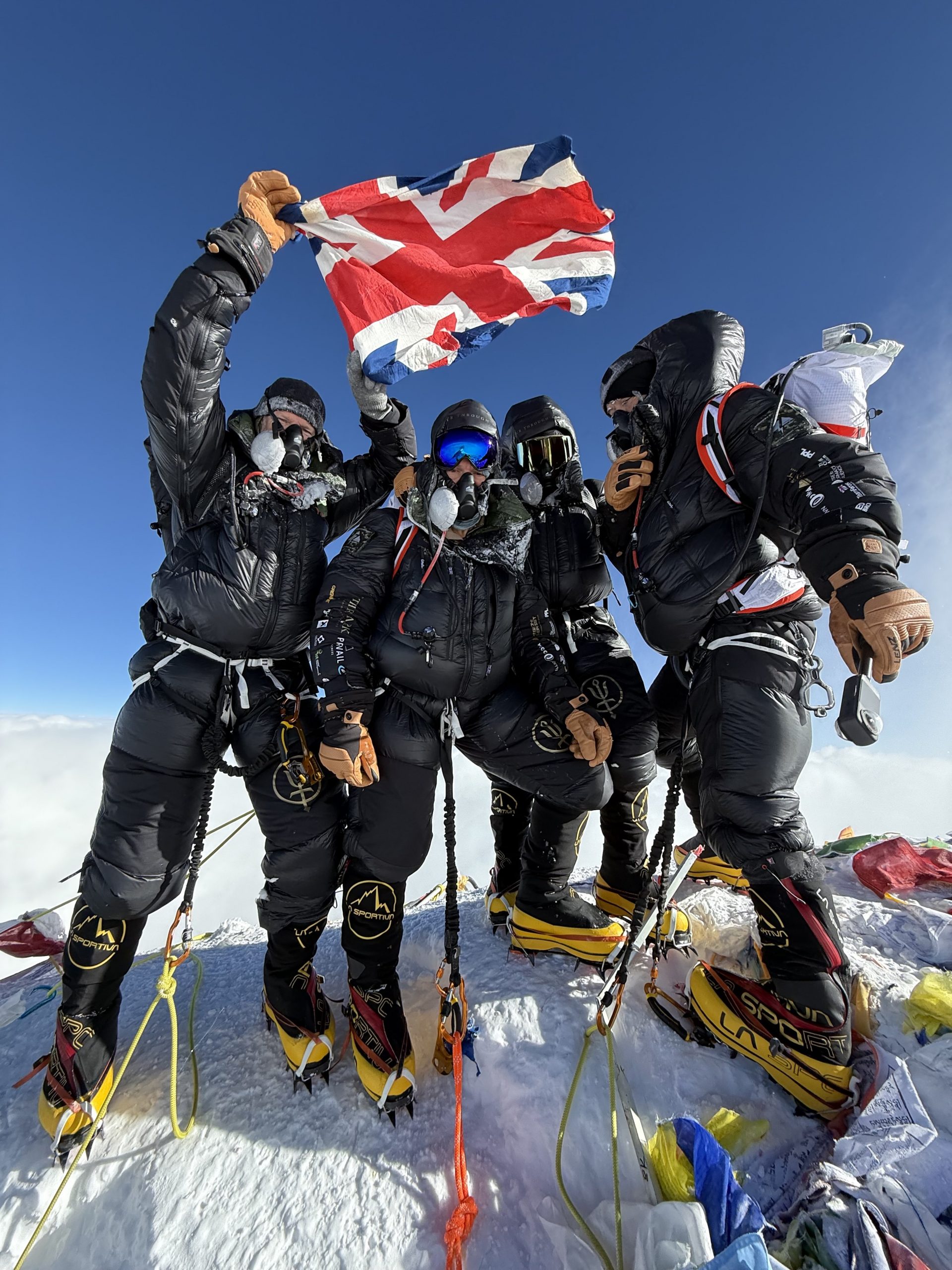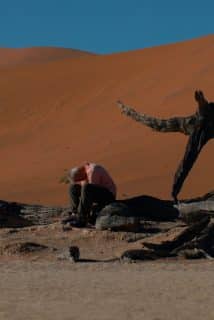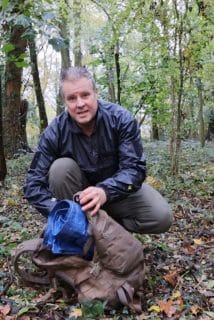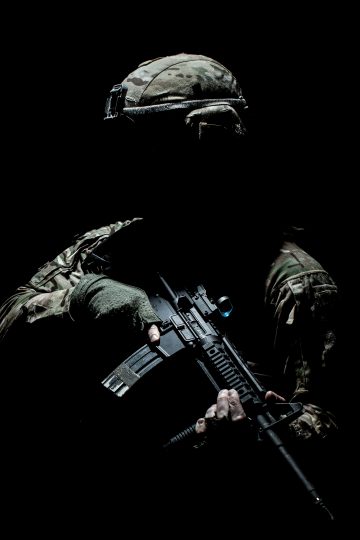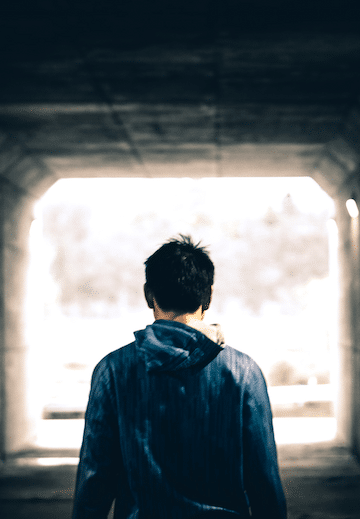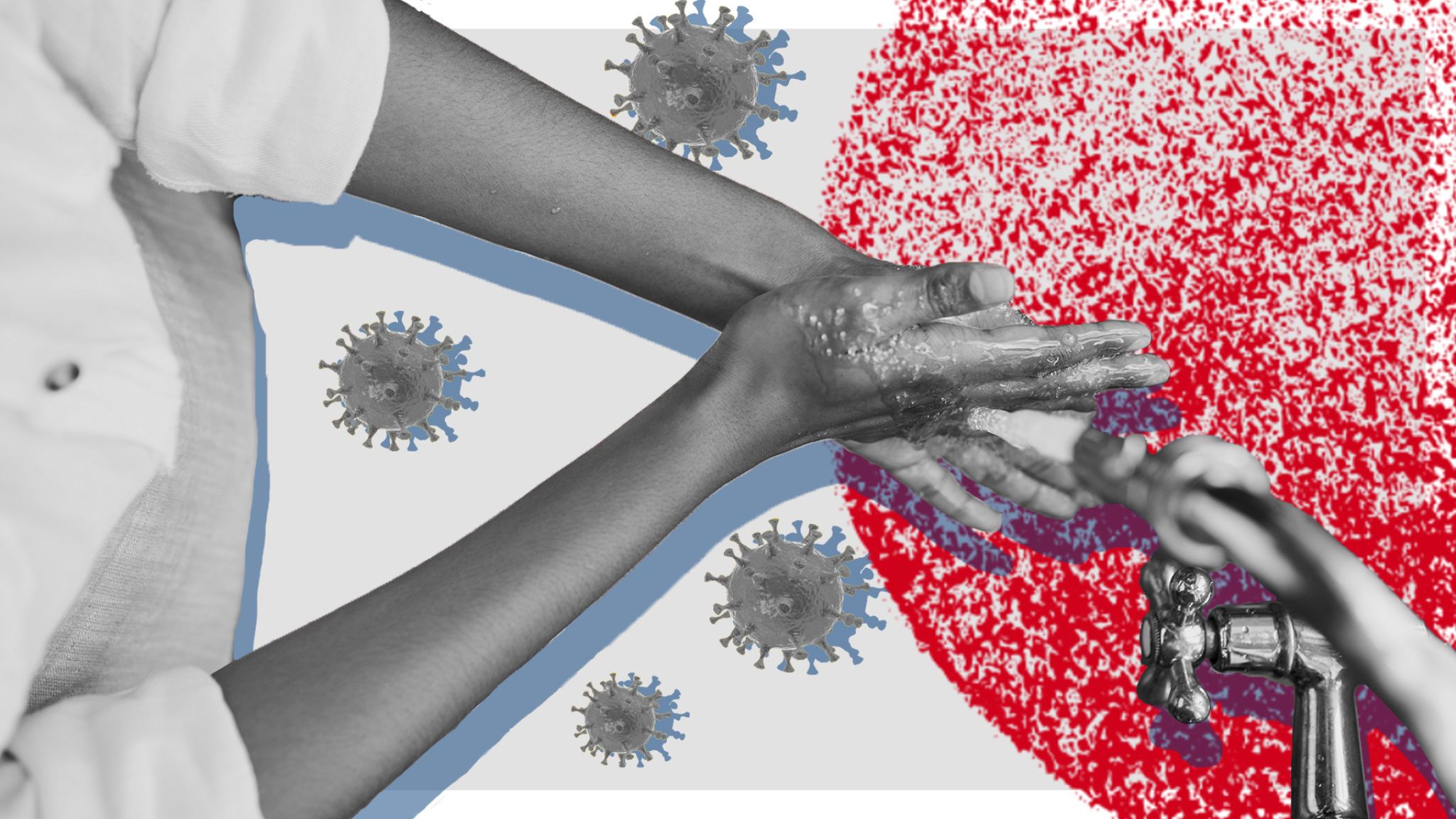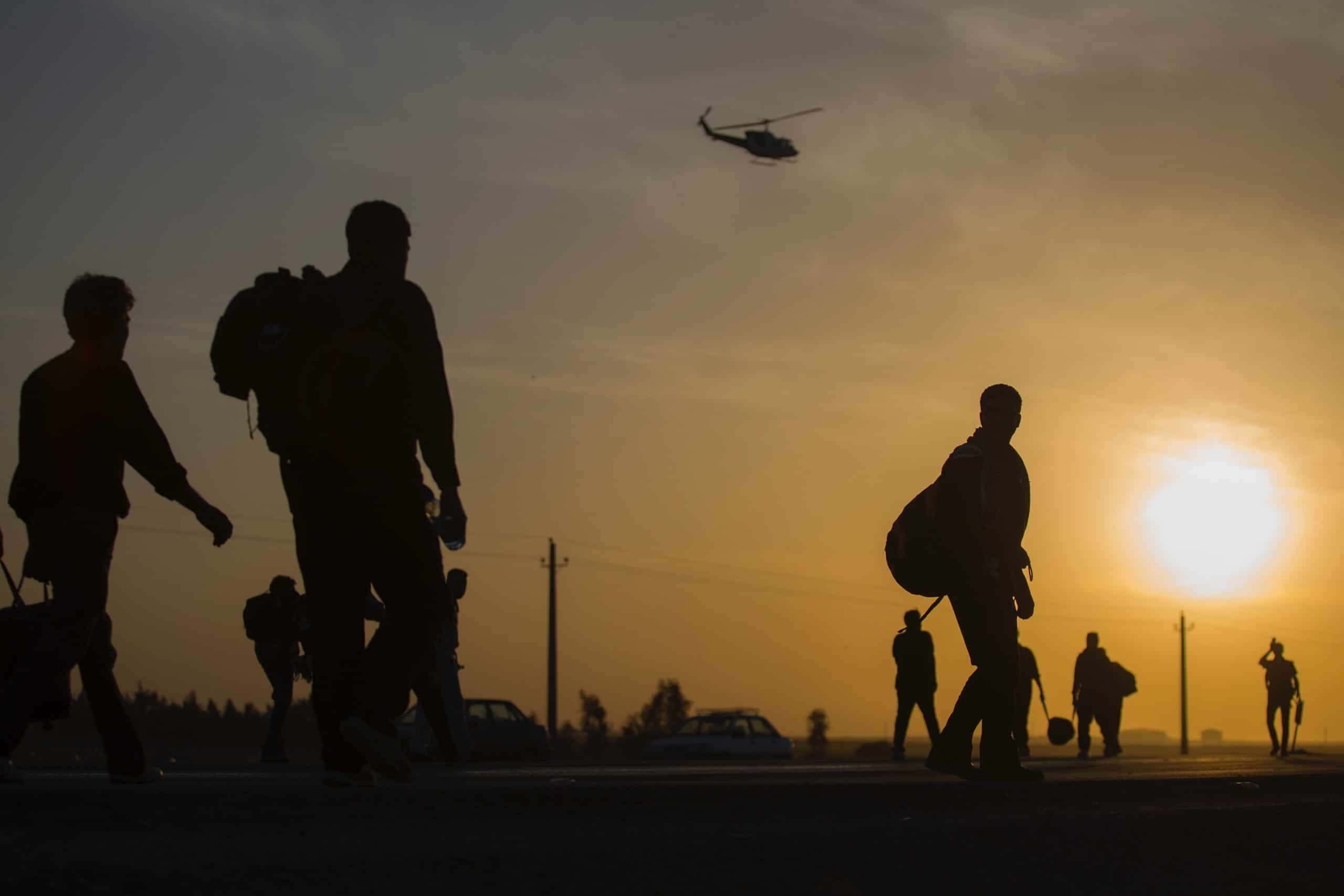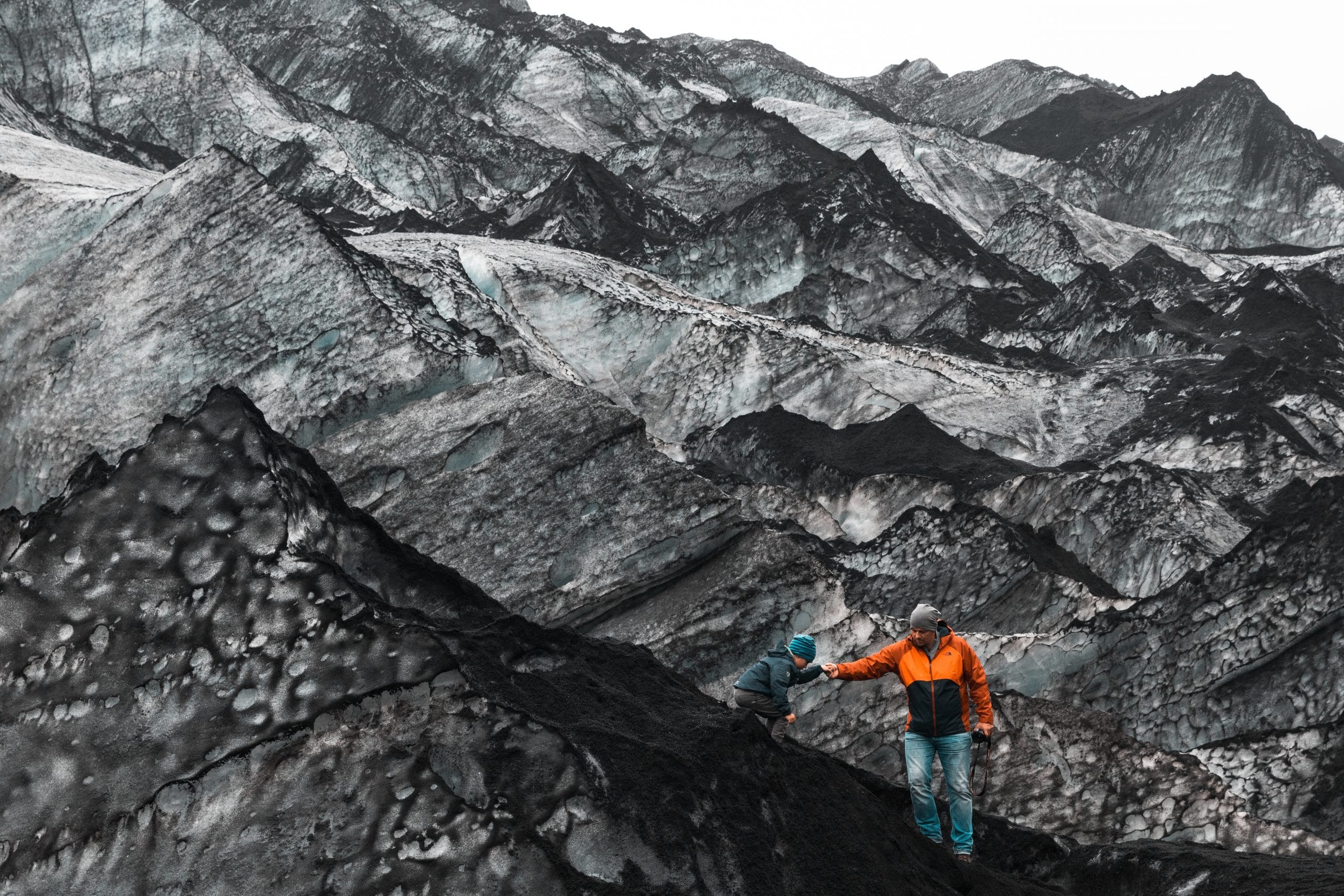Near-death and teamwork: inside the speed ascent of Everest
Kevin Godlington
Mission: Everest - a team of former soldiers - recently made the fastest ascent of the mountain ever, in just four days. Here, team member Kev Godlington, shares his close call story which demonstrated how working together enabled their ultimate survival, and success...
Great leadership doesn’t just inspire, it humbles.
Especially in the death zone on Everest and the infamous Lhotse face.
I would always tell my kids: when you think you’re fucked, you’re actually only about 25% fucked — and you’ve still got 75% left in the tank.
It’s something I’ve pretty much been convinced of my whole life, having done lots of so-called hard things — many requiring days and days of endurance, and days without sleep.
I’ve completed plenty of tough military courses, and in my younger years, I didn’t care what I had left in the tank — I just did it. Failure or stopping never really seemed like an option.
I’m nearly 50. It’s different now. Courage doesn’t seem so liberally applied; bravery feels like a distant “thing of the past.”
It’s like saving up all your beer credits to binge on a Saturday night — because the doctors count your misdeeds in units and tell you to use them gently throughout the week. What a ridiculous notion.
Anyway, I used up my last remaining bravery units on Everest. I had none left.
Going up was fine. Not that hard. “What’s the fuss about?” I thought, even when we [Kev, Anthony ‘Staz’ Stazicker, both ex-Special Forces, Veterans Minister and former Royal Marines Colonel Al Carns, Major Garth Miller] stupidly decided to do it in four days, sea level to summit, not the usual forty.
But coming down Everest, having hardly slept in three days, I hit something biblical in terms of pain — the kind I hadn’t felt since my army antics years ago. As Napoleon said: “Courage isn’t having the strength to go on — it’s going on when you have no strength.” Cheers, Napoleon.
Descent difficulties
Basically, coming down from Everest, I got the shits. It must’ve started around Camp 4 — cramps, schoolboy error, drinking snow without boiling it — you get the gist.
Before that I had summited in high winds with the team, when nearly everyone else from other expeditions had turned around. They’d given up.
We passed a number of freshly dead, frozen bodies. Our Sherpas began to abandon us, turning back due to the bone chilling cold.
After intense negotiations at around 8,500 metres by Garth and the team — in the dead of night and howling winds — we finally convinced our lead Sherpa to continue with two of them.
We redistributed oxygen, agreed to push until first light when the sun might hit our frozen bodies, reassessed the summit window — and then summited in short thrift – and anyway we did what we wanted. Minced around for some photos, then turned on our heels and started down the mountain.
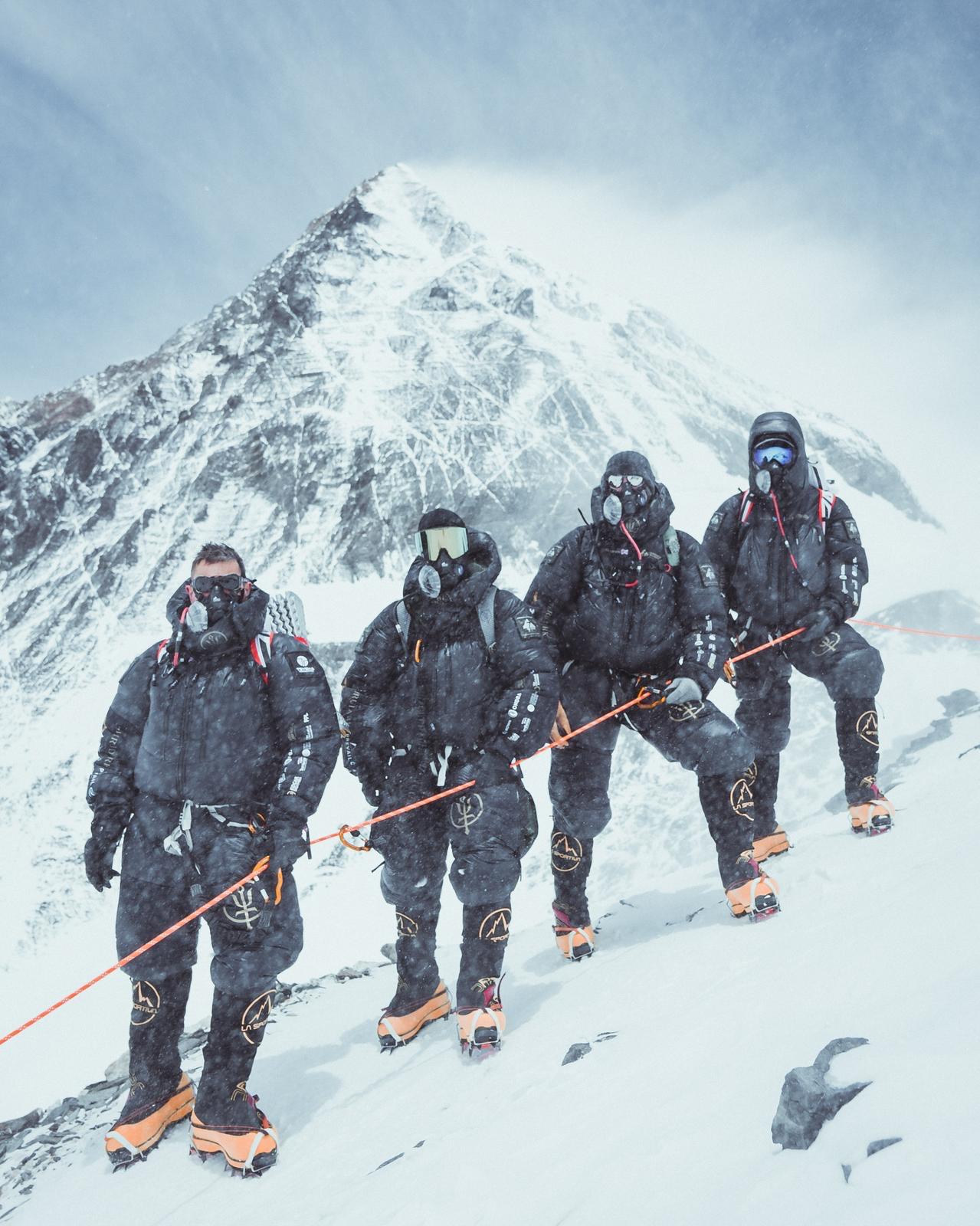
By the time I reached Camp 4 again, I was in complete disrepair. I started shitting myself. A lot. It was impossible to take off my down suit while clipped to the rope, and stopping wasn’t an option. So I just kept going — shitting myself for the next hour and a half.
Once I crossed the final icy tundra separating the death zone from Camp 4, I fell into the windswept, open-flapping tent, where Al insisted on hydration and nutrition. Every time I tried to sip or eat, I gagged. Desperate for oxygen, my body burning up with fever, I was gasping into my mask, gagging, gasping again.
“Fuck,” I thought, “I’m at 8000m and going man down — we may as well be on the fucking moon.”
And then — after only a 10-minute break — we were back on our feet, back out in the wind, heading down to Camp 3. The infamous Lhotse Face. We passed another freshly dead dude, stepped past the next wave of next-day hopefuls coming up the hill — clipping around them and their sanguine, knackered faces.
The Lhotse Face is 1,000 metres of vertical descent, with angles ranging from a shallow 35 to a steep, blue-ice, balmy 70 degrees. There’d been heavy snow from the night’s storm, so the path was steep and powdered. We reached the high camp of Lhotse — a mountain next to Everest — and pushed on. I kept shitting myself. Kept gagging into the mask.
You become switched off when you’re exhausted. I’d had about 12 hours of sleep in four days. I’d just summited the highest mountain in the world faster than anyone in history from sea level. And quite suddenly, I realised just how fucked I was. How this precious volume of liquid loss was breaking me.
“Don’t let the lads down. Don’t let the lads down,” rang in my ears like a fucked ticking clock. “Whatever happens, DO NOT be a liability,” reverberated. And: “You promised you’d get home”.
My mind flashed back to the line I always gave the kids: “You’re only 25% fucked…….” But I wasn’t. I was 75% fucked — and hanging on for dear life.
Of course I believe humans can achieve almost anything, and I was never ever for one moment not committed to escape, and self recovery. Giving up was never even considered by my oxygen starved brain. But it wasn’t going well.
Each foot placement slipped. My crampon technique, ropework, clipping in for safety — all starting to perish. I was becoming a liability. My judgment was impaired. My attitude — cautious and overly precarious.
I was shitting myself and genuinely nervous that every footstep might be the wrong one. I kept slipping. Kept falling. This wasn’t a guided “drag-me-up” expedition — we were all competent mountaineers and ex-SF soldiers. You’re expected to extract yourself. You are expected to survive.
The lads were just as tired as me.
I collapsed on the rope.
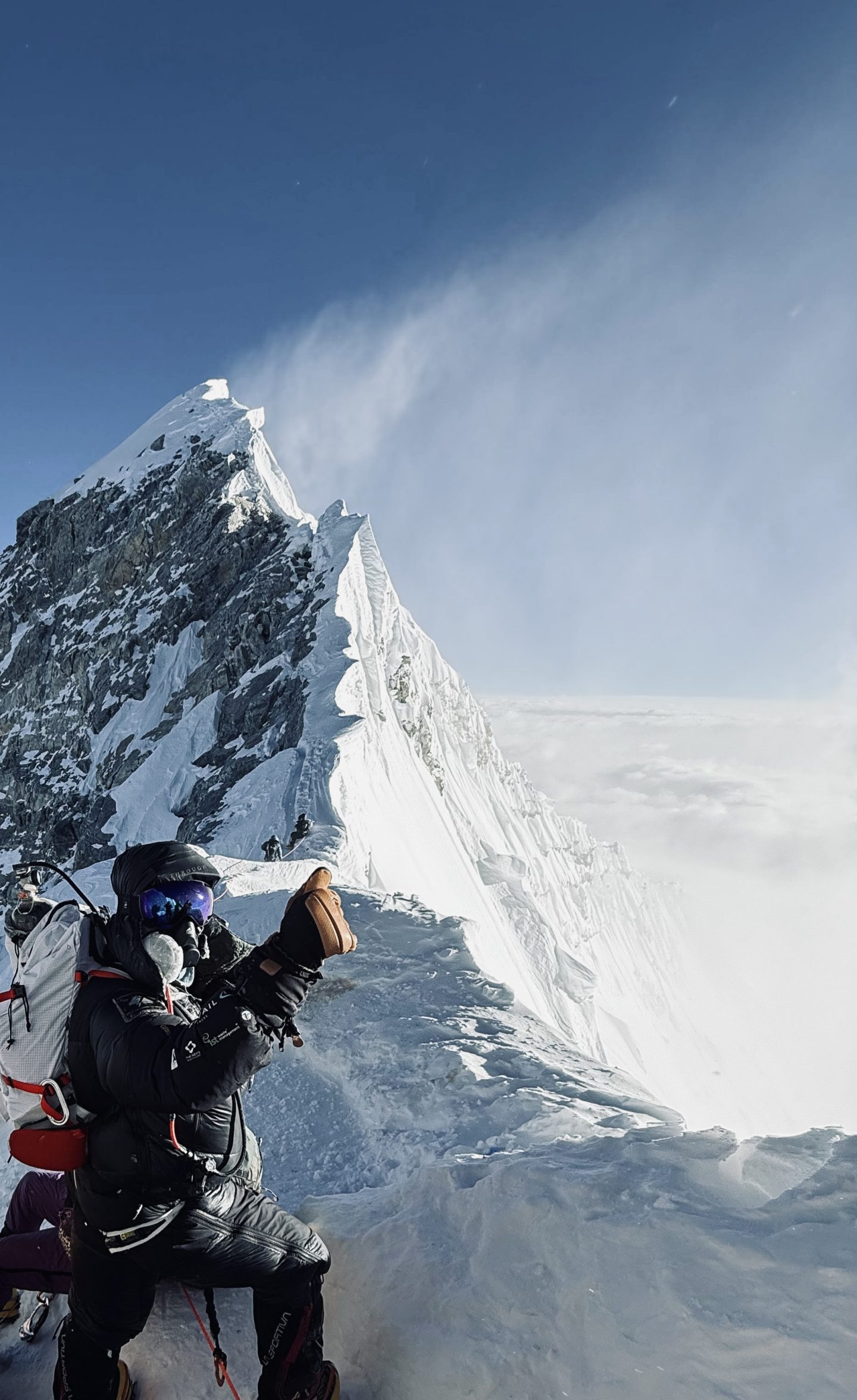
I lost consciousness for a few seconds, I guess. Then Al fired into gear. All I remember is his calm voice — and feeling him present behind me. I was sat with crampons dug into the mountain, leaning back into Al, who was also sat, holding me. Staz was below me, coming back up, pouring his water into my mouth. Garth arrived: “He’s got no oxygen.”
Shit — that’s why I passed out. I recall tussling, shouting, Al barking orders at Sherpas, Garth moving oxygen, pulling on my clothing, Staz giving me water. The lads got to me long long before a Sherpa, it was seconds.
Then suddenly it was OK. I was OK. I came round fully — the oxygen at 8000 m coursing back through my body. I composed myself and stood. We moved.
There is nothing more reassuring when the lights go out, than being held. It’s primal, it’s motherly, it’s nurture and nature at its most basic. It’s beautiful.
Staz stayed in front of me, keeping the rope tight for hours on end. He’d scuttle ahead, turn on his heels, and lean into the fall of the mountain, bracing the rope so I could use my right arm, my carabiner, and the short rope to my harness as a kind of braking system — saving calories I no longer had.
Al clipped in behind me, linking his carabiner into my own on the rope. “Will this make you feel safer, mate, if I clip into you?”
“Yes,” I said, embarrassed. Hypoxia and dysentery make you surprisingly clingy.
“I’ve got you mate,” he said, “If you fall, you’ll fall 4 feet before I stop you, it’s going to be ok.”
He leaned back. “Three steps, then breathe. Three steps, then breathe.”
He’d point into the distance below and say, “Can you see that, mate? There’s a person.”
I couldn’t see a fucking person.
“Guess what? 400 hundred metres at best.We’ll be there soon.”
Of course he was fucking lying. It was hundreds of metres away. An eternity.
“Once we get there, mate, we’ll get water. We’ll rest for two hours.”
Another lie. I knew we wouldn’t. Maybe 15 minutes, tops.
He helped me rip my hood back. I was feverish. “Who the fuck gets a fever when it’s god knows how far below zero at god knows what altitude?” I thought.
I did.
I had a fucking fever. And I was still shitting myself. Thankfully, everyone was wearing oxygen masks, so the smell didn’t reach their noses. We fell into Camp 3. I was broken. Collapsed into the tent. Al again forced food and liquids on me, telling me we had 45 minutes. We didn’t. We had 15.
It was that old Shackleton leadership style — famous from his ice crossing. He’d tell his men: “Go to sleep lads, curl up.” Then twenty minutes later, he’d wake them, saying, “You’ve had three hours, time to move.” They were none the wiser.
Leadership in these environments — when you’re completely fucked, exhausted, and unsure if your support team will even stay with you — that’s rare. We had no Western guides. Just high-altitude Sherpas. And true leadership, as I’ve seen in combat, war zones, and nearly 30 years of service, is incredibly hard to come by. It’s easy being a leader when outcomes are assured, and you are not exhausted.
They didn’t leave me on that rope for one second.
I understood how quickly people fall asleep on Everest. How those frozen bodies you pass on the way down — many of them just sat where they were, pulled their hoods over their heads, and went to sleep. Like Scott of the Antarctic. And honestly? It probably wasn’t painful. I doubt it was. As I drifted off on the rope, hypoxic gasping and shitting myself, I knew just how thin the line is — between life and death — at those altitudes, in that cold.
Our team’s leadership was so robust, the concept of leaving someone behind felt almost abstract. These guys would spare their last few precious calories or their final breaths of oxygen to share their mask with you — just to make sure you were okay. They would put themselves in harm’s way and deplete their already precarious energy reserves, not knowing if they might need them later down the mountain. At that moment, they cared more about you than themselves.
On the rare occasions I’ve witnessed this kind of selflessness over the last three decades, it has been the purest and most beautiful human gift one man can give to another. To experience it even once in a lifetime is to be blessed — to witness human kindness at its most powerful.
You can still donate to Mission: Everest’s charity fundraiser.
Trending

Join The Book of Man
Sign up to our daily newsletters to join the frontline of the revolution in masculinity.




